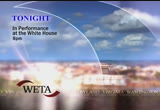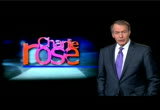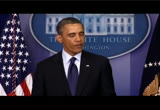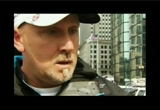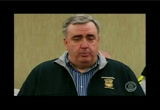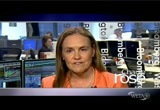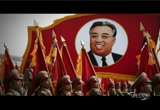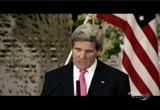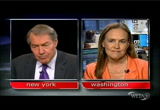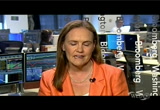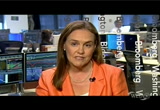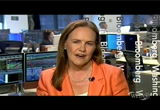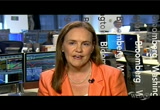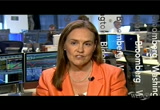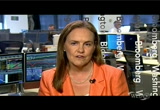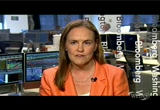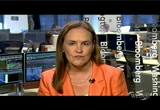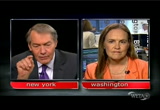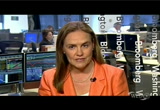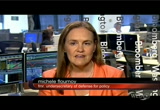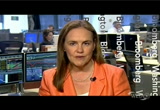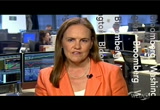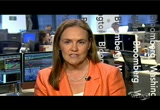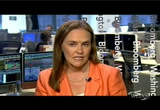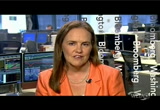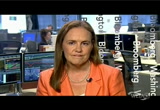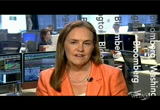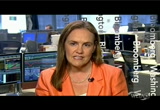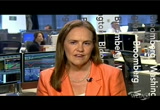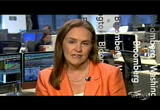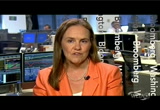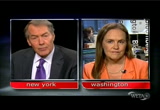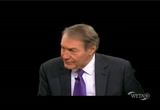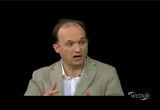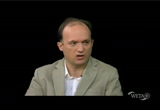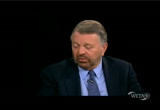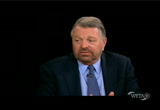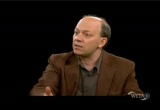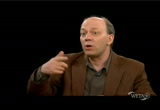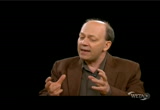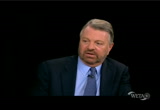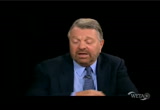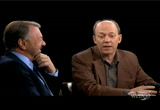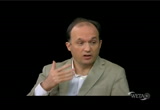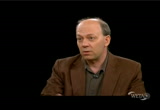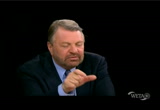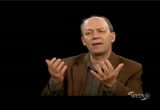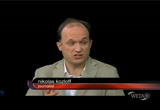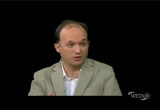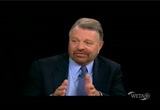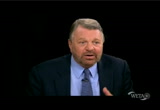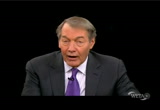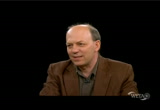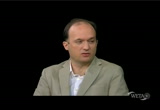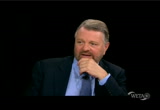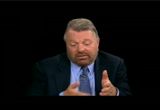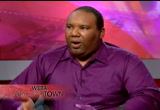tv Charlie Rose PBS April 16, 2013 12:00pm-1:00pm EDT
12:00 pm
>> charlie: welcome to the program. we begin this evening with a breaking news story from boston where there are explosions near the finish line of the boston marathon that resulted in the death of at least two people with many others injured. here is the he can ploation captured by cameras at the scene. as we taped this program at 7:00 p.m. eastern daylight time no one has taken responsibility for the explosions and police have not acknowledged suspects.
12:01 pm
authorities found at least one other explosive device that was dismantled. president obama has directed federal authorities to provide whatever assistance is necessary to state and local authorities. he addressd the nation earlier this evening. >> we still do not know who did this or why. and people shouldn't jump to conclusions before we have all the facts. but make no mistake. we will get to the bottom of this. we will find out who did this. we'll find out why they did this. any responsible individuals, any responsible groups will feel the full weight of justice. >> charlie: in a written statement a white house official said any event with multiple explosive devices as this appears to be is clearly an act of terror and will be approached as an act of terror. we continue this evening with the cbs evening news coverage with scott pele. >> the explosion went off at the most crowded point in the race.
12:02 pm
12 seconds later, there was a second explosion just a couple blocks away. >> so terrifying, so scary. it was so loud. >> i just walked away, 15 feet away, 20 feet, and, you know, a bomb went off. and it knocked me to the ground. and then, you know, everybody started running, panicking. >> reporter: jonathan elias from boston station wbz was nearby. >> body parts. people were blown apart. >> multiple people down here. i don't know what the cause is. standby. >> reporter: police rushed to assist victims tangled in debris and broken glass some missing limbs. bloody spectators were carried into the medical tent that had been set up to care for fatigued runners. >> there was some bad-looking people. i'm praying for all of them. we are all trying to put pressure on all the wounds for everybody. turn i cuts and whatever we
12:03 pm
could do. it was chaos. >> reporter: the runners were directed away from the chaos and people were ordered to stay clear of trash cans. >> we're going to need more ambulances down in this location, okay? >> yes, sir. they've been notified. they're on the way. we have every unit possible going, sir. >> reporter: edward davis is the boston police commissioner. >> people should be calm. but they should understand that this is an ongoing event. they should understand that we need all the inf7ation that we can get available to us. >> charlie: coverage from the cbs evening news with scott pele earlier this evening. we turn now to north korea and a conversation with michele flournoy a former senior defense department official about where the crisis in north korea stands. >> my worry is on the north korean side you have kim jung-un who is a very young inexperienced leader, the question is will he know when to stop? his father, hi grandfather knew up to... how to walk up to the line but stop short of war.
12:04 pm
the question is will he know how to do this or will he miscalculate because if he goes up the escalation ladder because of the geography, because of the tens of thousands of artillery aimed at seoul, the first hour of a full-out conflict would be very deadly for both sides. you would be very quickly into a full-scale war. that's the real concern. it's miscalculation. >> charlie: we conclude this evening with a look at the results of the venezuelan election with who hey cast need a, greg grandin and nikolas kozloff. >> i think his charisma was off the charts. that's not a bad thing. i think in terms of the 20th century of last inamerican history, the 21st century maybe juan per own maybe a few leaders here and there but i think chavez was real he'll one of a kind. >> charlie: explosions at the boston marathon, an analysis of
12:05 pm
12:06 pm
captioning sponsored by rose communications from our studios in new york city, this is charlie rose. >> charlie: today is the first day of the founder of north korea and the kim dynasty. some had feared that the day would be marked by missile tests although that did not happen, tensions remain high. john kerry's visit to the region on his first foreign trip as secretary of state, the six-leg tour has taken him to israel, the west bank, turkey, south korea, china and japan. the trip comes when military power is under scrutiny against a back drop of budget cuts at home. on sunday the secretary of state spoke from tokyo seeking to reassure american allies and bring north korea to the negotiating table. >> we are confident that we can address the concerns with respect to their security and find ways together with china and the rep republic of korea and japan and russia and the members of the six-party talks,
12:07 pm
we can find a way to resolve these differences at a negotiating table. i hope they will hear that and i hope they will respond to that and any other choice by them will simply further isolate them in the world and make it clear to the rest of the world where the problem really lies. >> charlie: joining me from washington is michele flournoy. she served as under secretary of defense for policy from 2009-2012. i am pleased to have her here this evening to talk about north korea, the united states, china and what in the world is going on. are you surprised by the conduct of the north koreans? >> not really in the sense that, charlie, we have seen almost after every leadership transition in north korea a series of provocations that the new leader has used to try to consolidate their power, domestically in terms of winning the support of the military, winning the support of the party. so i think there was some
12:08 pm
expectations that as kim jong-un came into power, he would, in fact, go through some cycle of provocations. i think what's been surprising is the pace and the level of bellicosity which is a little different than in the past. >> charlie: and are you surprised... many people are looking at founders day in anticipation there might be some kind of effort by him to use this day. but it did not happen. i mean, is that any indication that perhaps he realizes and perhaps with pressure from china that the bellicosity -- your words -- has gotten out of hand? >> we can certainly hope. i think we don't know yet. and the coming days will tell. the pace of this has been such that almost every few days some new outrageous statement, some new action has taken place. i think there's still some
12:09 pm
concern that north might be preparing a ballistic missile test of a medium-range missile so we'll keep an eye on that. but i think it's a little too early to tell whether we've reached the peak and this is starting to sort of come down in terms of tensions or whether this was just a pause in the action. >> charlie: the secretary of state said -- john kerry was in south korea, japan and china -- says we will never accept a nuclear-armed north korea. does that say exactly what he means and what the policy of this government is and if so, what specifically is he saying? >> i think u.s. policy for several administrations now both democratic and republican, have been to reject the notion of north korea as a nuclear weapons state. north korea signed the nonproliferation treaty. it needs to come back into compliance with its international obligations. obviously it does have an
12:10 pm
arsenal in being or at least the materials for a number of devices and on several occasions, we sought to negotiate with them to at least halt any further addition to that arsenal and then eventually to start rolling it back, to actually take steps as it did before to move towards dismantling the weapons arsenals, the weapons complex that supports it. again that's the kind of thing we'd like to get back to in negotiations, but i think it's up to north korea to demonstrate some kind of good faith that it's ready to get back on the denuclearization path. >> charlie: that should be a precondition to any direct talks. >> i think it has to be at this point in terms of we need some serious action that indicates a change of course on their part. you know, we've had a number of negotiations over the years. as my old boss, secretary gates,
12:11 pm
used to say, we have to avoid buying the same horse twice. there have been several times when north korea has said, we'll stop producing plutonium if you just give us this aid. we give them the aid. they stop for a little bit and then they start again and they want more aid to stop it. i think we have to be very careful about getting into that kind of cycle with them. >> charlie: but that's similar to the... some will argue that, yes, you may be buying the same horse but that the point of all of this is to try to talk and by talking you may come to something that you would not have come to necessarily and by assisting to steps that are... have to be taken before you talk, then you defeat in part the purpose of talking. >> well, i think what we need to see from north korea is some indication that they're willing to get back to talking about denuclearization which is what the focus of the six-party talks that involve not only north korea but south korea, japan, china, russia, and the united
12:12 pm
states, we need some indication not necessarily some, you know,... i'm not putting forward a specific precondition but we need something that we can take seriously as indication of a change of heart that they're willing to get back on the path that we were discussing before. >> charlie: we've had people who have been involved in negotiations at this table. they're saying that everything was presented to the north koreans they looked at and turned down. >> it's a very it's dits very, very difficult not to crack. i think what we also have to make sure that the north koreans understand is that, you know, this has real implications for the united states. we have alliance commitments, defense commitments, to south korea, to japan that we take very, very seriously. we have 28,500 troops on the korean peninsula. if they don't change their course of action, they will see the united states bolstering its defenses as the administration
12:13 pm
has already done with regard to ballistic missile defense. they will see us taking steps to get even closer to our allies to bolster our posture in the region and so forth. and i think they'll also see us working very hard to impose sanctions to try to make it harder for them to go down this path of building both nuclear weapons and ballistic missiles to deliver them. that is a direct threat to us. >> charlie: john kerry said that what happens with respect to north korea can affect iran and what happens with iran can affect north korea. what's the relationship between north korea and iran? >> certainly there has been some cooperation on the technical side. we know that north korea has actually shared some information about iran with regard to its nuclear program. but i think iran is probably watching this situation very closely.
12:14 pm
i think both regimes are interested in nuclear weapons as the ultimate means of ensuring that the... that their current regimes, dictatorial regimes survive and stay in power. i wouldn't be surprised if tehran is taking notes on how north korea is dealt with in this current situation. >> charlie: they're looking more at how we respond than what the north koreans do? >> i think both. i think they're looking to see what kind of reaction do the various actions engender, what is successful, what is not successful on the part of pyongyang. >> charlie: do we know... how good is our intelligence because, as you know, we had a day there in which intelligence agencies were saying different things and finally the head of the d.n.i. had to step forward and speak to the issue as for the administration's position. >> well, i think the consensus view is that north korea is
12:15 pm
certainly making progress towards both miniaturizing nuclear war heads that we could then put on top of a missile and towards developing missiles with longer and longer ranges. there was a minority opinion in the intelligence community from the defense intelligence agency that said that north korea may have actually reached that point of miniaturizing a war head, putting it on a missile. that was a minority view. i think director clapper was very quick to correct that perception and say, look, i think the majority, the consensus view in the intelligence community is that they are not there yet. but they are working towards that end. they are making progress as both the recent nuclear test and their recent missile test showed. >> charlie: do we have evidence that the north koreans have made a decision to go down that path? >> yes. i believe that the intelligence
12:16 pm
suggests... the consensus view is that they actually do have enough material for weapons and that they have likely put together the... some crude devices. we know that they've put together devices to conduct nuclear tests. and so forth. the question in north korea is the extent of sophistication. have they actually gotten to the point where they have a war head that they could be on a missile and deliver via missile which would obviously be a much more significant threat both to our allies and to the united states. >> charlie: they must know that if they attack south korea or japan there would be an immediate retaliation by the united states which would destroy north korea. >> i think if they were to go to war with south korea, i think we have to make it very clear to them that that's playing a losing hand that ultimately the
12:17 pm
south in alliance with the united states with our full support and backing north korea would lose. >> charlie: we talked about engaging... when we think about north korea versus south korea versus japan versus the united states, are we talking about some kind of ground war or are we talking about nuclear weapons? >> i think if it's the north, the most likely scenario is there's some kind of provocation as we saw in 2010 that actually results in the loss of south korean life. in that instance what's different now is you have a south korean government that will actually respond. in self-defense. that would immediately take self-defense measures on the part of the military, likely strike something in north korea. we have done extensive planning as an alliance to say look at different scenarios and say beyond that initial defense move, what are the options for
12:18 pm
deescalating? what are the options for reestablishing deterrents and so forth? and how would we act together, u.s. and south korea as allies? so i think there's a lot more thinking that's gone into that. and so forth. but my worry is this is, you know, on the north korean side you have tim jung-un who is a very, young, inexperienced leader. the question is will he know when to stop? his father, his grandfather knew how to walk up to the line but stop short of war. the question is, will he know how to do this? or will he miscalculate because if he goes up the escalation ladder because of the geography, because of the tens of thousands of or tillry that are aimed at seoul, the first hour of a full-out conflict would be very deadly for both sides. and you would be very quickly into a full-scale war. that's the real concern. it's miscalculation.
12:19 pm
>> charlie: are they rational enough to listen to the chinese? >> i would hope so. you know, the chinese supply a huge amount of economic assistance, energy assistance. the north is very dependent on them. china's main concern is stability. they do not want to see thousands and thousands of north korean refugees pouring across their border. so i would hope that behind closed doors, china would be having very candid and forceful conversation with this new leadership in north korea. i think that secretary kerry's trip in china was very much to encourage them to do that and because i think while china certainly doesn't control north korea, they have more leverage than any other international actor. in the mix. >> charlie: there are some who believe that the chinese are very much opposed to the north koreans doing this because of their oarch interest. they don't want to see the
12:20 pm
united states move into asia, new kinds of missile defense systems and the like that would make their own circumstance more difficult for them. >> i think the chinese are concerned about the fact that north korean threats, bellicosity could actually cause the united states to build up its military posture in the region, could cause us to do even more to strengthen our alliances with the south korea and japan. and there's truth in that. that's exactly what we will do to defend our allies, to try to maintain stability and security absent any sort of new behavior on the part of north korea. so i think china does have its own incentive to try to put some pressure on pyongyang and try to deescalate the current tensions
12:21 pm
and get them on to a more reasonable pattern of behavior. >> charlie: does the united states, beyond what china might do, have any real influence? >> you know, i do think we have things that we can put on the table that they are interested in because earlier rounds of negotiations, the north koreans were very interested in the lifting of international sanctions. they were very interested in some sort of assurance from the united states that we would not attack them. they were very interested in getting to eventual normalization of relations. now again these are things that again are in the united states' control to put on the table. but we are a very long way from having those kinds of discussions. we have to see first a cessation of these kinds of provocations, a reduction of rhetoric, and
12:22 pm
some good-faith effort to get back to the path of denuclearization. i would like them to get back to the last agreement we put in place which was simply let's start with a moratorium. let's start by stopping your production of plutonium, your production of highly enriched uranium. let the nuclear inspectors back into the country to see what's going on. that would be a great start to communicate, okay, we're serious now. we want to come back to the discussions and get out of this crisis mode. >> charlie: i hear you. clearly you're right. but i'm trying to understand, you know, a country that has been so insensitive to the plight of its own people is subject to sanctions and anything other than what the chinese can deliver to them. >> well, i think that the
12:23 pm
sanctions have certa)xe hurt but i think what really causes greatest pain is when china, for example, stops, you know, exporting fuel oil to them or cuts off some form of economic assistance. that is what will really get their attention. and cause them potentially to recalculate. >> charlie: what can we do to make the chinese do that or not to make them but to encourage them to do it? >> i think having the kinds of disputions that secretary kerry had in beijing which are very candid, which are focusing on the common interest we have on stability in the peninsula which focus on, you know, identifying some steps, a way forward, for how to get into a new situation and i think these are the kinds of issues that i expect, you know, came up in those private discussions. >> charlie: the middle east does not go away while we focus on north korea. >> no, it doesn't.
12:24 pm
charlie: syria. are we reaching a point in which the west, the arab countries that surround syria have to do something? >> well, i think there have been actions that have been taken. it's not that we have not been doing nothing. we have been providing humanitarian assistance a number of the rebel groups and so forth. >> charlie: what kind of support? >> i think there's been some... all kinds of nonlethal support, command-and-control support and so forth. my concern right now is that... is the dynamics within the rebel forces where you have some islamic extremist groups seeming to start to gain the upper hand in some areas. if the... if and when the assad regime ultimately falls you'll see a subsequent battle between the different factions of the rebel groups. we have a great interest and a great stake in ensuring that the
12:25 pm
moderate rebels come out on top rather than the violent extremists that are associated with jihaddist groups and so forth. >> charlie: two points. one of the groups has already said that it has a relationship with al qaeda. >> yes, it has. charlie: secondly, does this mean that we should have done more earlier when there was a more domination of moderate groups and before some of the more radical groups came in to syria? >> you know, i don't think it's that productive to reajude ict the past. i think the options are what they are going forward. again i think in addition to watching what happens with these extremists we have to keep as the president has rightly said a very close focus on the chemical weapons arsenals and making sure that that those don't fall into the wrong hands. >> charlie: what will we do if they look like they're going to fall into the wrong hands? >> i think there's a lot of thinking and planning going on
12:26 pm
with regard to that inside the u.s. government. and, you know, i think that would... i would hope that that would cause us to provide some additional forms of support to the rebels that are more moderate that we believe are the core of a post assad syrian government to enable them to be effective to take control of those facilities and safeguard them. >> charlie: what are the 1-2-3 things that we can do to make it better, more likely that the moderate groups will have the upper hand if assad falls tomorrow or six months from now? >> i think the administration has been rightly focused in the political side. what's really going to ultimately, i think, bring this to a head is when the part of the population that has been reluctantly supportive of the
12:27 pm
assad regime because they don't feel that they have any other option, when they truly believe that they will have a say in a new syrian regime that that regime will be serious about protecting minority rights and be inclusive of all syrians i think working that political side to get greater unity among the different rebel groups to get them to be explicit about their promises particularly to minority groups and so forth that's to me what is going to turn the tide in this conflict. >> charlie: where do you think it is today? regardless of the make-up of the rebels, are they advancing or is it in a steal mate or how do you measure what's happening on the growfned? and the staying power of assad. >> i think assad's staying power is diminishing gradually, too
12:28 pm
slowly, but continues to diminish. it's hard for anyone to imagine a way that he will ultimately survive this. and keep his hold on power. the question is how will power dissolve? that's what we have to be focused on again to ensure that the wrong elements aren't empowered in the process, that the extremists aren't the ones who step in and fill the vacuum. >> charlie: should the rebels set conditions suggesting, saying that, you know, we're prepared to talk about the future but only if assad goes. is that a legitimate and credible and understandable and perhaps necessary position on their part? >> i do think assad's departure from power has to be... >> charlie: a precondition. ... part of any agreement. you know, whether it's a precondition or simply an accepted part of a phased plan, interestingly i think that what
12:29 pm
has happened the transition that was negotiated in yemen is instructive where it was a negotiated transition, where it was understood he would step down but it was done in a series of steps that all parties agreed to. it actually went remarkably well. >> charlie: which brings me to last my last question maybe about afghanistan, maybe about syria, maybe about other places. some people come to this table -- secretary kissinger, former secretary baker -- and say, what we need is for some international conference, an international coming together of people who have influence within the region to somehow help impose a solution. take that on afghanistan and take that with respect to syria. is that a way to go?
12:30 pm
>> well, you know, in afghanistan i actually think you've had a plan that 49 countries have bought into. that's what we're executing in terms of transitioning the lead responsibility for the country to the afghans by the end of 2014. and then having the international community provide assistance to afghanistan beyond that as long as they stay on the path to democracy and, you know, and so forth. i think with regard to syria, i do believe there is room for greater international consensus on how this transition should take place. previously the russians were blocking that. obviously the iranians wanted no part of it. but i think at this point in time it's worth trying again to see if we can build more of an international consensus behind some kind of agreed transition
12:31 pm
plan. given the stakes involved for everyone and given the very real dangers should the regime fall in a totally uncontrolled haphazard way that leaves a vacuum for very unsavory elements to step in and fill. >> charlie: michelle, thank you so much. >> thank you so much. good to see you, charlie. >> charlie: you too. thank you again. back in a moment. stay with us. we turn now to venezuela. they went to the polls on sunday and elected maduro president. he meet opposition candidate capriles by a slim margin. capriles is calling for a recount. a month after his death the memory of hugo chavez still divides venezuela. the next president must confront mismanagement of the country's oil and violence. joining me is jorge castaneda. he is now professor at new york new york university.
12:32 pm
greg grandin a historian of latin america and a professor at new york university and nikolas kozloff an author and journalist who has covered venezuela for many years. i am pleased to have all of them here here at this table. welcome. let me begin starring here. what does this election say to us about venezuela and its future and venezuela and its past? >> well, i'm very concerned because i think maduro doesn't have nearly as much clout or legitimacy potential eight if this recount goes forward as chavez. whatever the shortcomings of chavez and i've been critical of venezuela and chavez over the years. i think venezuela has been kind of the ring leader of the left. if the popular... if something should overshadow the revolution in venezuela that has huge implications for the wider region. my hope personally is that maduro who is kind of an
12:33 pm
ideologue in my personal opinion, but i would hope that if we get beyond this recount maduro assumes the presidency and perhaps he can put push the more innovative measures such as the communal councils, the barter exchanges, and perhaps get out of this ideowhrojical foreign policy so that we can move to sort of the latin left 3.0, the 1.0 was probably fidel in cuba which i think pretty much went out of, you know, it's been superseded. the second wave is probably hugo chavez. but i think the latin left needs to progress towards a third phase. so perhaps if you combine all of these measures the more innovative social measures and perhaps adherence to more environmental climate change concerns, then the bolivarrian revolution can continue and influence the wider region.
12:34 pm
>> charlie: many people think that there's little resemblance between chavez and bolivar. >> well, yeah, i think that chavez always made these historical illusions to simon bolivar. i think it was a little bit over the top sometimes. but simon bolivar resonates in venezuela. he united the country. throughout much of the 19th century venezuela was divided politically. you had these regional leaders and the 20th century was dominated by military dictators. venezuela harks back to them and that resonates quite a lot symbolically. that's why he employed that kind of symbolism. >> charlie: ma during a was a bus driver, a labor leader. he showed early allegiance to chavez and chavez put him in government. >> he was his foreign minister for three or four years. he is considered to be closer to
12:35 pm
the cubans than other people in chavez's previous entourage. i think that one of the reasons we had this somewhat surprising result on sunday that for practical purposes it was a dead heat. even if we accept that the fiejt of final result will be similar to the one given out on sunday, that is that ma during a won by a percentage point-and-a-half or something it was much less than what a lot of pollsters predicted before. one reason was it turned out he was not a very good candidate not a very good campaigner. there were other reasons but that was one of them. is he that close to the cubans or is he someone who is willing now, for example, to talk to the americans the way the "new york times" reported on monday that he had sent a message through bill richardson who was in caracas to president obama saying let's talk. is that true? we'll see. my sense is that he's not -- and i agree with you a little bit, i
12:36 pm
think, nicholas -- he's not up to the job if he really only got half the vote. that is not something that is going to make for a lasting presence in the presidency. >> charlie: for the most part he would carry on the policies of hugo chavez. >> i think he would except that a lot of economic reforms have to be undertaken very quickly because the economy can't continue the way it is among other things giving gasoline away. they can't go on that way. >> nick raised the question of ideology. it's important to note that the opposition it wasn't an election administer it. more efficiently. they accepted the social missions. they accepted even the foreign policy. dressed in red. he was in some ways praising chavez and saying that maduro wasn't worthy. he see it wasn't an election about ideology but an election about continuing the goals. it's been remarkable. the way to think about it is to
12:37 pm
step back and really consider that this remarkable experiment in social democracy that we've seen more in south america than central america and mexico but a little bit in central america since for the last 10, 15 years beginning in some ways with chavez's election is outlasting. it's first-generation of leaders. lula went through his two terms. >> charlie: many people say he was a champion of the people who chavez thought he was the champion of. >> i think they both... if you read lula wrote the wonderful you'll gee in the "new york times" on the op-ed page praising chavez. they each came out of very different that divisions. they presided over very different countries. >> charlie: they had a very different kind of success. >> yes and no. they both brought down poverty and iny call. you have to step back and understand the context that produced both of them. lula came to power in a very complex society. chavez came to power where the
12:38 pm
political, old political and economically completely collapsed. he had to build something out of scratch. just to put the closeness of the election in perspective ma during a won with the same percentage point that george w. bush won in 2004. he won with 0% participation electorate. he won with a greatly expanded number of registered voters, 40% of all eligible venezuelan but maduro, only 30% voted for him. >> charlie: a higher percentage of voters. >> it's a few percentage points lower. so the question is... >> that may be why... he's not... i think a lot of the chavez voters from last october... >> either stayed home. ... or even voted. the way it breaks down the way the electorate in venezuela, the way that chavez support, the remarkable support over the last decade breaks down is roughly 50% of people who don't like
12:39 pm
feel like their lives were better than chavez or they liked chavez better than who we were running as. gay and lesbian movements, urban barrios, peasant communities that have really felt like that they are part of chavez. they made chavez. i would say that maybe about 750,000 voters that voted for chavez either stayed home or voted for capriles. the question is where did they come from? i would say they're probably from that percentage of the chavez base of support that wasn't organized. they judge east candidate. it speaks to the durability and resilience of venezuelan democracy. >> charlie: let's open it up and look back. what's the finally valuation as the leader of venezuela, the good and the bad. >> two-fold, charlie. one, while i don't consider the statistics reliable because i think most of them are generated
12:40 pm
by the venezuelan government and so like i don't think most of the... is generated by the mexican government even when i served in it, i prefer to have international agencies come up with this. but even if we suppose that things improved in venezuela over the past 15 years, they improved everywhere in latin america over the past 15 years. poverty has gone down remarkably in every country in latin america. left of center governments. right of center governments. inequality has gone down. venezuela spent a trillion bucks getting similar results to those at other countries got for much less. i think on the economic side the outcome is similar to what everybody else did but at a much higher price. in political terms, you know, full disclosure i'm a member of the board of directors of human rights watch but i believe what they say as an organization, they were expelled from
12:41 pm
venezuela. they've come up with some very damning reports about human rights violations, freedom of the press. independence of the judiciary, et cetera, et cetera in venezuela. i have to subscribe what they say not only because i work there but because i think they're a very serious responsible organization. for me the balance is not great which is what we're seeing in this election. this should have been a walk in the park. they should have been able to win this election on sunday night without any problem. they barely did. >> i would respectfully disagree with the economic statistics. they come from the world bank and i.m.f. they come from a whole list of outside organizations. beyond that. venezuelans have repeatedly showed dissatsz fax with the the economic system by voting for chavez or his agenda 14 out of 15 elections. and there's all of these polls. earth institute jeffrey sacks, you've had him on this show a lot. he's hardly a spokesperson for
12:42 pm
left populism in latin america. conveniencvenezuelans were listf the happiest in all of south america. gallup poll, latin barometer in chile. venezuelans have voted for chavez for the last decade so i think that we can't really sit here and say that the economic situation hasn't improved dramatically for venezuela. >> charlie: but i think the point he was making was it has improved throughout south america. >> the caribbean also. you were talking about the pros and kons. i think you hear a lot of the mainstream media about chavez this dangerous radical. he went too far. in my personal view he didn't go far enough. i think there's been this conflict between the top-down and the bottom-up.
12:43 pm
chavez talked about participatory democracy, socialism for the 21st century. that was always a bit vague. i think you always had that contradiction between the centralization of power and then trying to build up popular movements from below. and my personal opinion not nearly enough attention was paid to building up these grass roots measures. >> i think it was very particular to venezuela. it took power in a complete vacuum, a complete collapse of crisis. oil money allow him to... oil money never forced him to side with one or the other current within the broad strands of what dists. >> charlie: back to the economy. how did he manage the old economy? >> venezuela's economy grew. it had two contractions one during that maximalist oil strike that the opposition forced on the country which practically destroyed the economy back in first half of chavez's presidency. after 2008 and 2009. but it grew 5% last year. i mean what chavez did... one of
12:44 pm
the things that chavez did is he got state control of oil revenue once again. oil is now the property of the venezuelan state. it was semi-privatized prior. it would certainly allow for more redistribution. i mean it is the model that brazil is following. >> i'm not sure the brazillian oil company has supermarkets, greg. to the best of my knowledge it doesn't have hospitals, it doesn't have supermarkets or bakerees. >> but what's wrong with... so using oil money to subsidize... >> well, they subsidize gasoline to the tune of giving it away. gasoline for practical purposes. it got worse and worse because inflation kept going up. them didn't keep up with it. >> again, venezuelans themselves have consistently... >> that's the most regressive subsidy you can have in a country like wens wail a and
12:45 pm
others because the people who have cars and the middle class and the upper class. it's not the poor. if you subsidize gasoline. >> what about access to health care and slashing extreme poverty. >> that's where i think we have the interesting discussion. whether... i don't believe that they didn't do it. what i'm not sure is, one, if they did more than almost every other country in latin america. and two, how much did it cost to do it? >> i agree that south america has made enormous strides but that's largely because of the rurp of a social disem karattic left that you can't extract chavez from. >> (all talking at the same time). >> charlie: chavez was unique and different and therefore he wrought miracles in terms of that kind of populism that others in latin america did not do. >> when you look at other places in latin america, they did have
12:46 pm
the same kind of economic growth. and more. >> but again if you go back to lula's... >> charlie: the best example. but lula in that op-ed said he couldn't have done what he did if not for chavez. it was a good cop bad cop vis-a-vis the united states. >> charlie: when lula took power he immediately tried to bring society together in terms of the varying interests and surprised most people with the means that he did it and the way that he did it. >> again i would submit that the context they emerged out of was extreme leap different. venezuela and brazil. >> charlie: from labor in the military is where they emerged both. let me come to foreign policy issue. cuba. the relationship with cuba. was that a wise thing to do? or did he do that because he so identified with castro and he wanted to be seen as the next castro? >> well, this is also where i'm a little critical of chavez and
12:47 pm
maduro who was his foreign minister up until recently. i'm as critical of u.s. foreign policy as anyone. i don't support interventionism but you don't want to go so far in the other direction that you start, you know, cozying up to tin pot african dictators like qaddafi, assad, and the one in belarus who is still running the kgb and backing up the chinese in their clamp-down in tibet. in many ways i think... >> charlie: ahmadinejad. ahmadinejad who is anti-semetic amongst other issues which the left does not want to talk about because of the taboos. i understand the impulse. you want to counteract the u.s. chavez was under pressure from the bush administration. i understand that. you don't want to go so far in the other direction that you sort of drag the left through the mud. i think that maduro was very uncreative an ideological foreign minister.
12:48 pm
at a certain point i wondered why not craft a certain kind of foreign policy that is a lot more ininnovative. climate change, for example. it rails against the global north for consuming oil. it's hypocritical because venezuela has exported billions of barrels of oil which has exacerbated climate change. >> with all due respect we have a former foreign minister here. he can tell you how difficult it probably is and what constraints there are in terms of the foreign policy. latin america has struggled to have its own foreign policy. one may not agree with everything. there's tons of things that i wouldn't agree with. i wish they didn't do. but it's a stubborn country. and when you look back, this is the region where the united states intervened to change the government 41 times between 1898 and 1994. in a country, in a region that hasn't been able to have its own
12:49 pm
foreign policy. i think that everything that mick just said about venezuela one could say about the united states in terms of its consumption of fossil fuels, its inability to come up with a creative foreign policy. >> the cuban issue, charlie, is really more symmetrical than it seems. i disagree with what they did but i can see what chavez and the venezuelans and maduro got out of it. >> charlie: what? they got out of it the teachers, and they got the security machinery. the guys who were his secret service, the guys who were his f.b.i., the guys who were his c.i.a. were cuban which means they were totally loyal to him and to the castro blows. no... brothers. no fooling around with the military coups, no fooling around with the pop situation. that is not an unimportant issue. if there was a discussion on sunday night in caracas about what to do with the rules i think the cubans played a very
12:50 pm
important role because for cuba maintaining the oil subsidy is only a matter of life and death. they probably pushed for it. >> charlie: they pushed for? maduro to do whatever had to be done. if it was done, i don't know yet. i want to see the the opposition, what was toi come from a country where e teach people how to steal elections. that's what we do. we're good at that. >> charlie: do you think that maduro didn't really win. >> i would like to be sure. i would like to be sure that they didn't have an electoral operation in the afternoon to krek the results. i don't know that. >> jimmy carter monitored over 90 elections in 90 foreign countries. he said venezuela was the best there is. but what he was talking about... >> there were no observer s. at's not true. the way that it works is you go in, you vote electronically and get a little receipt like an a.t.m. receipt and you drop that receipt in the ballot box.
12:51 pm
it's very hard. >> i don't know who i would rather have watching my elections, the mexicans or the cubans. >> charlie: how do you assess the good and the bad. clearly he has an influence that continues in venezuela. that's clear. correct? >> absolutely. i think he's absolutely a mythical figure. i think that there's good and bad aspects of that. populism can mobilize people for short-term political gain but i think in the long term if you invest so much in the charismatc leadership the psychological investment with the people and the symbolism and i think that as i was saying before once a populist leader is taken out of the equation and you don't build the long-term structures for change, that's a problem. >> they want garbage picked up. they want crime taken down.
12:52 pm
>> charlie: having said what you said and your support for chavez, who is a better leader for his people? fidel or chavez? >> i would say barack obama for the united states. it's mixing apples and oranges. i i agree with jorge complete. it's a symmetrical relationship. >> charlie: what people emphasize about fid oal's leadership in cuba is the very same thing you've been emphasizing about hugo chavez. the very same ideas. >> i think what's different about it is that tube a is an authoritarian state. venezuela has elections. you can complain about lack of procedurallism in venezuela. the debate is wide open. what they did was... >> there's no comparison. cuba has been and will remain to be for practical purposes a dictatorship. venezuela is not. >> i think the electoral process
12:53 pm
was not democratic. >> you mean procedural? there's no death squad? nothing compared to... >> there's no comparison. charlie: who is the next chavez in latin america? >> it could be carriya of ecuador but the problem is that ecuador is a much smaller country than venezuela. it doesn't have nearly as much oil. but he's clearly a protege of hugo chavez and has the same rhetorical shoot from the hip style. it's somewhat mixed. i support some measures that he's undertaken. for example he's been a little bit good on the environment where i think the latin left has been traditionally quite weak. >> i think he's incomparable. i don't think there's another leader like him or has pen in a long time. his charisma was off the charts. that's not necessarily a bad thing. the left has to learn how to
12:54 pm
administer. in terms of the 20th century of latin american history maybe juan perone or a few leaders here and there but i think chavez was really one of a kind. >> i'd rather we not have either a fidel or a chavez in the future. i think we're beyond that. what's interesting, for example, about someone like lula who was charismatic and successful and everything he has tended to fade away. he apparently is not running for his third term. a couple years from now. >> he's also ill. his successor is not doing a bad job. little by little what we're getting over in latin america and it's a good thing is this charismatic leaders some of whom are more successful and more attractive than others. one can like. one can dislike. those are personal questions. i think the most important thing is that the region is getting beyond that. moving towards institutions, moving towards... >> charlie: and a different relationship with the united
12:55 pm
states. >> at the end of the day i mean chavez is or was a man of the cold war. he continued to believe that the united states was intrinsically evil and what it did in life was to make life miserable for latin americans. base being himself on 150 years of history where there were real examples, unquestionable examples, as greg said, of making life miserable. but that's over. >> it's not over. think it's time to move on. i'd rather move on. >> charlie: thank you. thank you. charlie: thank you for joining us. see you next time. captioning sponsored by rose communications
107 Views
IN COLLECTIONS
WETA (PBS) Television Archive
Television Archive  Television Archive News Search Service
Television Archive News Search Service 
Uploaded by TV Archive on

 Live Music Archive
Live Music Archive Librivox Free Audio
Librivox Free Audio Metropolitan Museum
Metropolitan Museum Cleveland Museum of Art
Cleveland Museum of Art Internet Arcade
Internet Arcade Console Living Room
Console Living Room Books to Borrow
Books to Borrow Open Library
Open Library TV News
TV News Understanding 9/11
Understanding 9/11